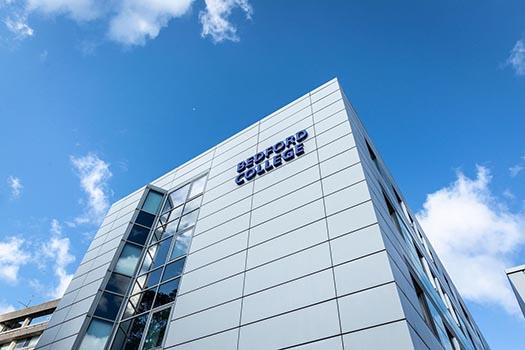The Bedford College Group harness the power of the Ouse River to decarbonise heating with £2.8 million grant

As part of efforts to significantly reduce carbon emissions, The Bedford College Group has implemented major infrastructure changes across a number of campuses, in support of its goal to reach net zero emissions.
The College, which is comprised of several sites across Bedfordshire and Northamptonshire, is expecting to save over 350 tonnes of carbon and £88,000 annually through their ambitious heat decarbonisation plan. Through undertaking feasibility studies, the College were able to conclude that it was their Cauldwell Campus that would most benefit from infrastructure improvements. It is here that they dedicated a large fraction of the £2.8 million grant from the Public Sector Decarbonisation Scheme (PSDS), which was delivered by Salix via the Department for Business, Energy and Industrial Strategy (BEIS).
Winning the PSDS enabled us to take the next step in our decarbonisation journey, not only is this project beneficial environmentally, it has also allowed us to enhance the comfort of our students and staff.
Technical Breakdown
- Water Source Heat Pump (WSHP)
- Genius Control - heating management system
- Carbon management strategy with learners.
- Future implementation of air source heat pumps (ASHP)
Utilising natural resources
The grant allowed for the installation of a Water Source Heat Pump (WSHP) at the College’s Brundtland Building, which is licenced to take water from the Ouse River. This upgrade will work as a heating system; as well as enabling the college to replace gas boilers and decarbonise the heating of the building. The College’s plan to reduce its carbon emissions across its infrastructures also involves controlling heating through Genius Controls which operate similarly to movement sensors.
This technology detects when there is movement in the room and sends a signal to generate heating and manages the levels when the room is vacant. Moving forward The Brundtland building is set to be carbon negative following the upgrades, which brings the college nearer to its goal of attaining net zero status by 2050. The College have plans to further innovate its campuses to improve the energy efficiency of their estate. Introducing a new net zero building; the Connolly Centre for Modern Construction, is an example of such an initiative and the College’s dedication to reducing their carbon emissions.
Estimated savings for Luton Borough Council:
- Annual savings: £88,000
- Total grant value: £2.8M
- Annual carbon savings: 350tCO2e*
To view the full case study please click here.
Follow Salix on Twitter @SalixFinance or LinkedIn for the latest updates.
*Calculated using Green Book emissions factors for electricity published by the government.


